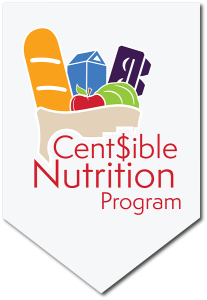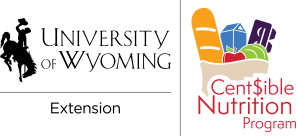Growing Community: Garden Blooms into a Center for Learning and Partnership
Summer 2022
Sometimes a great partnership starts with a single email and an idea, at least that is how it went for Debbie Kelly, Bobbi Holder, and Karen Horner with the learning garden at the Park County Complex.
“I just happened to be watching the county commissioners meeting because I noticed on the agenda that Deb was going to be presenting about a garden thing,” says Horner, Director of the Park County Library. “So I watched it, then literally right after that I just emailed them and said ‘Hi, I’m Karen and I want to help.’”
The idea for the garden started when the University of Wyoming Extension (UWE) office in Cody moved to the Park County Complex. Kelly, educator for the UWE Cent$ible Nutrition Program (CNP), and Holder, horticulturalist with UWE, saw opportunity in the sprawling grounds.
“The property around this building is amazing,” said Kelly.
For the last several years, Kelly has worked with community gardens in the area and helped connect people with limited resources to locally grown food. With the grounds around the building, she wanted to create a garden space that would be open and welcoming for everyone in the community and have an emphasis on learning. To make that happen, Kelly and Holder had to get the idea approved by the county commissioners, which is where Horner heard the plan.
Once Kelly and Horner met, the ideas started flowing, Kelly said. “We were just bouncing ideas off of each other, which was super exciting.”
The initial garden idea had a blooming effect that grew to encompass accessible walkways in and out of the garden, sidewalk stencils for being active, a story walk, benches, supports for the seed library that was established in spring 2022, and a pollinator garden.
“If it wasn’t for Deb, Bobbi, and us [library], I don’t think we would have had the story walk and the kindness benches. That was huge. It transformed the whole entire complex,” Horner said.
It is a community garden, Kelly explained, but not in the way most are, where individuals have private garden beds. This is a community garden for learning and programming, designed for community activities where adults and children can learn together through the garden.
Kelly, who teaches nutrition and cooking classes through CNP, taught participants in the Park County Drug Court Supervised Treatment Program (STP) and used the garden as a place to try new foods and learn about growing food. STP participants helped plant and harvest in the garden beds, growing kabocha squash, cucumbers, green beans, zucchini, potatoes, lettuce, acorn squash, tomatoes, and herbs. They were able to take home some of the harvest, leaving the rest for donation to local anti-hunger agencies, like the food pantry.
“Almost 200 pounds of produce from the garden beds was donated,” Kelly said.
The garden was also used by the Pardners Café inside the library, which provides vocational training for adults with disabilities.
“Pardners café has a little section of the garden used to grow things they use in the café,” Horner said.
The vegetable garden flourished in part because of the pollinator garden Holder established on the grounds, in partnership with the conservation district.
“That’s helped the library to connect with the conservation district and they’ve offered to do programs for us for our seed library,” Horner said. “It’s a whole inter-connected web of us helping each other.”
The conservation district wasn’t the only partner involved, with local contractors laying concrete for a sidewalk system to make the garden accessible and a local artist and volunteers helping to paint physical activity games on the sidewalk alongside Kelly. The library foundation paid for the sidewalk and fencing around the garden while other grants helped pay for the planters and soil for the garden.
“We got a lot of community support last summer for doing everything,” Horner said.
The changes to the grounds have been noticed, with regulars stopping to learn more about the projects.
“The sidewalks around here get used on a daily basis by the same people,” Kelly said. “I don’t know how many people I had come up to me and want to know what kind of [garden] beds they were, and what we were growing and why.”
In the coming year, Kelly and Horner hope to see nature walks, story time, 4H club garden efforts, seed library programming, and possibility cooking and art classes happen with the garden.
“I really do feel that it has added to the property up here. The space that we occupy was a hard space for building and grounds to take care of. It’s kind of on a side hill,” Kelly said. “Now, with the garden space there, and the pollinator plants around the outside of it, it is beautiful.” Kelly said. “Hopefully it doesn’t stop when I walk out those doors. That’s my biggest hope- that it keeps going.”
With so many ideas for the future, the garden seems likely to continue to flourish and be the hub of community it was intended to be.
“I think, for something like this, it really shows a sense of that community pride and ownership,” Horner said. “It supports a quality of life and makes people proud of their community. It makes people want to be involved in their community.”

